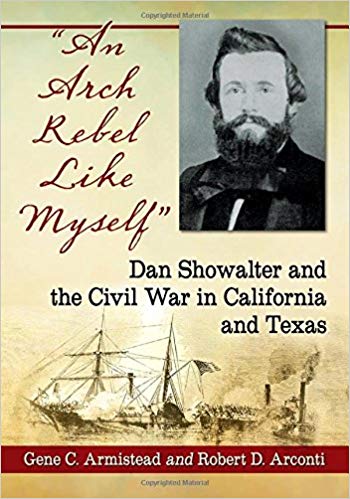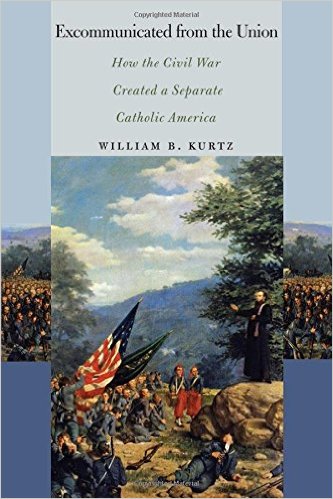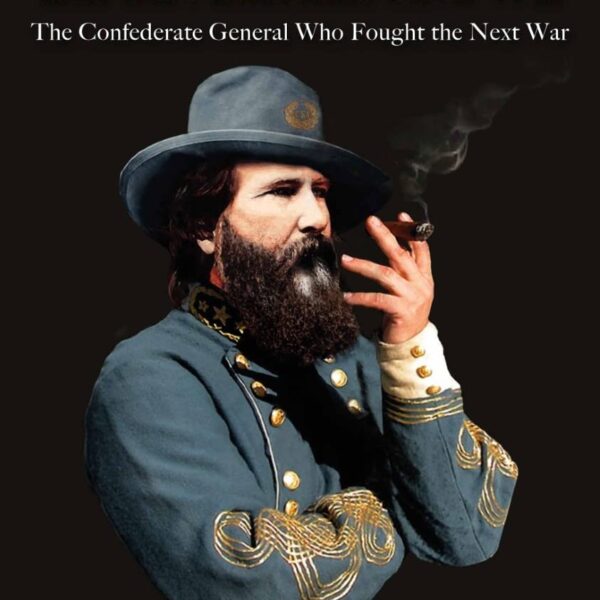While there are shelves of books about Ulysses S. Grant and Robert E. Lee, dozens of Civil War generals have not yet scored biographers. One name that falls into this category is Maj. Gen. George Sykes, the only Union corps commander at Gettysburg who has not received book length treatment. Another is the disgraced Union army commander defeated at Bull Run.
Like Sykes, Maj. Gen. Irvin McDowell did not leave behind any memoirs. In fact, only ten McDowell letters—written to his wife, Helen, in 1862—exist today. Despite the paucity of primary source material written by the general, authors Gene Schmiel, E.L. “Dutch” Schneider, and Frank P. Simione, Jr., set out to tell McDowell’s story.
The authors engage in no hagiography; indeed, they conclude that McDowell was a man asked to perform duties beyond his capacity—duties that “served both to enhance his peculiarities and shine light on his shortcomings.”
One cannot help but come away with a feeling of pity for McDowell, despite his flaws. Thrust into a leading role in May 1861, he was tasked with leading the largest army ever organized at the time. Comprised of green troops and a questionable officer corps at the division level (Tyler, Hunter, Heintzelman, Runyon, and Miles), McDowell was tasked with crushing the rebellion. A better man in similar circumstances might also have failed to accomplish this monumental task.
The authors address how McDowell ended up in such an important position and the events that led to the disaster at Bull Run in July 1861. McDowell’s relationship with Secretary of the Treasury Salmon P. Chase of Ohio had much to do with his appointment to command the Department of Northeastern Virginia, even though Maj. Gen. George B. McClellan was Chase’s first choice.
McDowell didn’t enjoy strong support from his colleagues. Lt. Gen. Winfield Scott doubted McDowell was up to the task and preferred Brig. Gen. Joseph K.F. Mansfield instead. Resentful that he had been passed over, Mansfield undermined McDowell at every opportunity. These factors, coupled with McDowell’s limitations as a general, all contributed to the Union disaster at Bull Run.
Lincoln gave McDowell a second chance after the debacle, but his poor performance on the same battlefield a little over a year later, while serving under Maj. Gen. John Pope, sealed his fate and ended his active participation in the war. The book examines in detail the events surrounding the Second Battle of Bull Run, McDowell’s court of inquiry, and Maj. Gen. Fitz John Porter’s court-martial. McDowell was exiled and shuffled between insignificant administrative positions until his retirement in 1882.
When Maj. Gen. William T. Sherman gave a speech in Columbus, Ohio, shortly after the war, he omitted McDowell’s name from among the Ohioans who served the United States armies as generals. Likely a simple oversight on Sherman’s part, this snubbing nonetheless embodied McDowell’s Civil War career. McDowell reportedly told British war correspondent William H. Russell that, “Had I won that battle I should have been the most popular man in America.” Having slipped into obscurity, McDowell referred to his service during the war as “a disagreeable subject.” To add injury to insult, his first name is misspelled on his headstone at the San Francisco National Cemetery.
Grammatical and formatting issues do not detract from this interesting biography of a controversial Union general. The authors set out to better understand a complicated man and tell his story despite a dearth of primary source material, and they manage to accomplish that goal. Readers will come away with a better understanding of McDowell and the unfortunate circumstances surrounding his military career.
Frank Jastrzembski is a regular contributor to the Emerging Civil War blog. He manages “Shrouded Veterans,” a not-for-profit organization devoted to identifying and repairing the graves of Mexican War and Civil War veterans.





